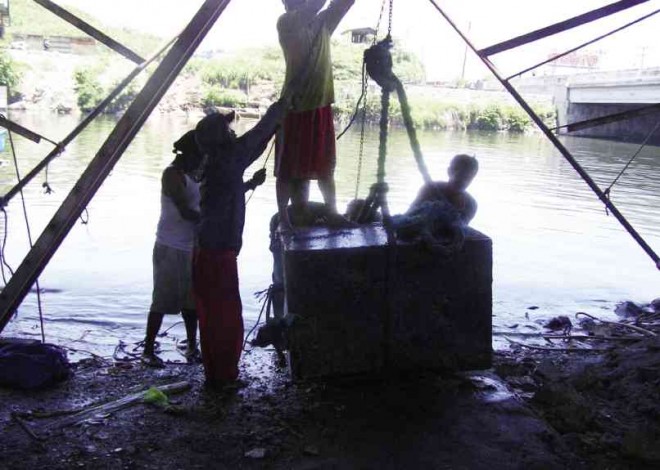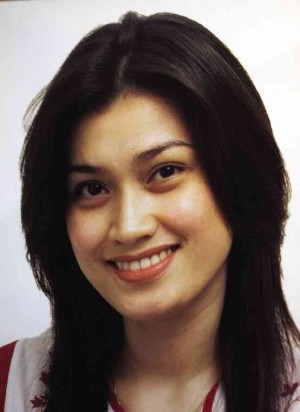How Ruby Rose Barrameda suspects got to post bail

HEAVY BOX OF HORROR Exactly six years after authorities recovered the body of Ruby Rose Barrameda which had been stuffed into a steel container from the waters off Navotas City, the judge in charge of the murder case allowed three of the accused to post bail on June 10. PNP-PIO Photo/Inquirer file photo
The prosecutors’ failure to present strong evidence of the guilt of three accused in the Ruby Rose Barrameda murder case prompted the judge to grant their petition for bail.
In his resolution dated June 10 granting bail to Manuel Jimenez Jr., Lennard Descalso and Robert Ponce, Judge Zaldy Docena of the Malabon Regional Trial Court Branch 170 said the 10-day period he gave for the formal offer of evidence before the bail petitions were submitted for resolution in May “lapsed without any compliance from the prosecution.”
As a result, he said that the evidence that the prosecution failed to present, such as the clothes and jewelry retrieved from Barrameda’s body which was found in a drum off the waters of Navotas City in 2009, “shall be excluded and rejected by this court” even if they had been marked earlier as exhibits. It was not clear, however, whether this applied only to the bail petition or extended to the murder case filed against the accused.
Docena, however, noted that even if the evidence had been offered in court, these “would have been authenticated and given weight [only] in the course of the examination of (Manuel) Montero” who, he pointed out, failed to attend subsequent hearings.
Witness disappears, recants
Montero, an accused-turned-state witness, disappeared from police custody in March 2013. He later recanted his testimony which linked the three accused and several others to Barrameda’s murder.
According to the judge, the prosecution “failed to establish that the evidence of guilt” of the three accused was strong even though they were “afforded reasonable notice and all the opportunities to adduce evidence on the strong guilt of the accused in adherence [with] the requirements of procedural due process.”
“The court [can] only surmise, at the very least, the motive of the other accused in killing the victim. But surmises and conjectures, no matter how strong, [cannot] substitute for competent evidence so as to deny accused (Jimenez), Descalso and Ponce of their right to bail…,” Docena said.
At the same time, the judge noted that “no valid excuse or justification was offered to explain [Montero’s] continued absence, to appear not only for the continuation of his direct examination [but] also for his cross-examination relative to his earlier declarations.”
According to Docena, “the prosecution could have easily moved for an arrest, or … have the witness cited in contempt for his willful failure to appear at the trial as a material and vital witness for the prosecution.”
“At the very least, [they should have] moved that Montero be re-included in the criminal information as one of the accused for the second time,” he added.
Incomplete testimony
Robert Barrameda, the victim’s father, said the prosecution team handling the murder case was composed of Theodore Villanueva and Benito Oliver Sales III from the Department of Justice.
According to the judge, since Montero’s testimony on the murder remained incomplete, “the same could not be the subject of a cross-examination, a right accorded to the accused.”
Docena said that Article 3, Section 14 of the 1987 Constitution for instance, mandated that the accused “shall enjoy the right to meet the witnesses face to face.”
In addition, the law also states that the accused in all criminal prosecutions “shall be entitled to confront and cross-examine the witnesses against him at the trial,” he added.
More questions than answers
“The rule is settled that the primordial purpose of cross-examination is to test the truth or falsity of the statements made by Montero during his brief direct examination…. How could the truth then be ascertained if the cross-examination was not conducted…?” Docena noted in his resolution.
He also said that the star witness’ testimony “raised more questions than answers on the circumstances of the tragedy that befell the Barrameda family.”
Jesus Hernandez, the branch clerk of court, said that the three accused posted bail the day after the judge approved their petition. Descalso and Ponce posted bail of P100,000 each while the judge set a bail bond of P75,000 for Jimenez after he noted that the accused voluntarily submitted himself to the court’s jurisdiction.
Barrameda disappeared in March 2007 in the middle of a custody battle with her husband for their two daughters. Her body was found on June 10, 2009 based on a tip from Montero.
Asked to comment on Docena’s resolution, Sales told the Inquirer: “You have to understand, I have a boss.” He added that it was his understanding that the judge’s order on the inadmissibility of previously marked evidence applied only to the petition for bail.
Villanueva, meanwhile, could not be reached for comment.
RELATED STORIES
Ruby Rose Barrameda’s husband loses bid to clear him of parricide case
CA affirms parricide indictment of Ruby Rose Barrameda’s husband
